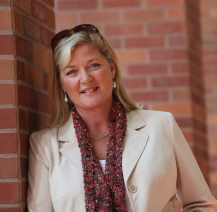From Bachelor's Degree to PhD

Patricia Pendry was always interested in child development, but never imagined she'd become a human development professor and researcher at a well-known university. There were significant challenges in getting there: the college degree she earned in her native Netherlands didn't set her up well for making a career change or applying to American graduate schools, and Pendry was also working full-time and raising her children.
Pendry enrolled in an evening psychology class at SPS to see where it would take her, and soon she was hooked. "It confirmed that I love the field, and I decided to earn a new undergraduate degree," she says. "I started taking more classes. I'd get the kids to bed by 7:30 and then hit the books." But the real spark came for Pendry in a challenging class on personality theory and research taught by the late SPS instructor Scott Acton. "That's when I was bitten by the research bug," she recalls. "I realized I wanted to conduct my own research in an academic setting and that requires a PhD. Acton helped me realize I was capable and inspired me to pursue graduate school. It was a great loss when he died in an accident. I later dedicated my dissertation to him. He and other SPS instructors, like Eshkol Rafaeli and Michael Bailey, gave me a lot of encouragement and flexibility, too."
Thanks to her instructors' support, as well as hard work and an attitude that you get out what you put in, Pendry earned her bachelor's degree with a major in psychology in 2000 from SPS and went on to obtain a PhD in Human Development and Social Policy from The Graduate School at Northwestern in 2007. She was then offered an assistant professorship at Washington State University, and is currently teaching child and family development courses. She also conducts research on the effects of family functioning on child stress, health and behavior, as well as related interventions. Pendry's most recent project, funded by the National Institute of Health (NIH), is a clinical trial on the effects of equine (horse) facilitated learning on adolescent stress hormone functioning and social competence in children. "I love what I do, and my family loves it here in Washington," she says. "SPS made a tremendous difference in my life."
